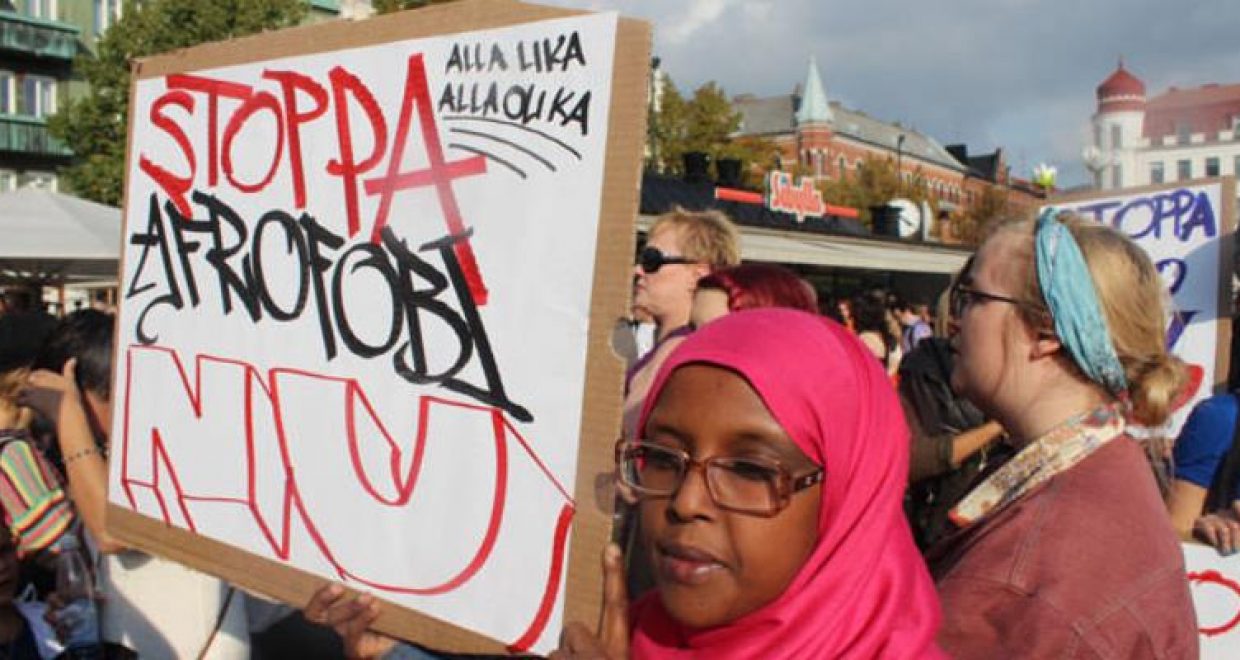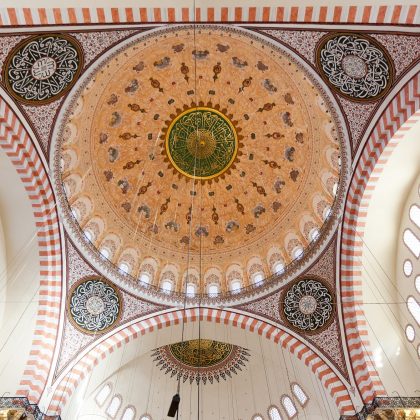Afrophobia
When, in September 2019, the editors of the Journal of Modern African Studies invited Professor Moses Ochonu, a historian at Vanderbilt University, to write a brief on recurrent xenophobia in South Africa, we were unsettled by the apparent contradiction between repeated attacks on individuals from other African countries, and the idea of Ubuntu, a philosophical insistence on Afro-human solidarity championed most vigorously within the South African academy. We had put the following questions to Professor Ochonu: “What, from your perspective as a historian, happened to the Lagos-Johannesburg axis that was once touted as the lynchpin of the African renaissance? Are Ubuntu and Afro-solidarity the same thing, and if not, can they (still) be reconciled? And how do you see pan-Africanism in all of this? What specific economic, cultural, and historical forces are at work here, and is there something to be learned about the apparent disjuncture between the ideals and aspirations of the articulate classes (erudite champions of decoloniality, etc.) and the South African social underclass?” In its final issue (58/4) for 2020, JMAS will publish Professor Ochonu’s essay, entitled “South African Afrophobia in Local and Continental Contexts.” Professor Ochonu’s article, which responds brilliantly to our prompts, is a model of the craft of the historian, and the work of one at the peak of his powers. The blog post below is a summary of his arguments in the article, and we hope that it will generate much-needed debate at this vital juncture in South Africa’s- and indeed the African continent’s- evolution.
On South African Afrophobia
Moses Ochonu
Contrary to popular assumption, South Africa’s Afrophobia is a recent phenomenon and a departure from the arc of South African intellectual history. Before and during the Apartheid era, Black South African thought was Africa-facing, appropriating, and contributing to the pan-African ideational currents and struggles being implemented and debated in Africa and its diaspora. Major Black South African thinkers such as Magema Fuze, Pixely Ka Isaka Seme, and later, Anton Lembede, Jordan Ngubane, and others embraced a pan-African outlook out of necessity. They needed to cultivate a cosmopolitan pan-Africanist political imagination that connected to the ideological and anticolonial ferment in the rest of the continent because, unlike other African colonial settings where there was an existing colonial nation-state, South Africa was a nation conceived as an independent state for Whites only. Lacking a national frame of reference forced Black South Africans to construct a nationalist aspiration that rejected both white supremacy and Black nativism in favor of pan-Africanism.
The implementation of apartheid in the 1950s and beyond only intensified the determination of Black South African elites to look north of the Limpopo River for inspiration and solidarity. However, even in the pre-apartheid and apartheid periods, tensions were discernible. Some Black intellectuals rejected pan-Africanism and instead constructed their identities and politics in terms of their engagement with the British Empire.
Furthermore, local struggles against the peculiar burdens of South Africa’s settler colonialism made a consistent pan-Africanist commitment difficult for Black activists. Moreover, segregationist rhetoric and apartheid policies worked to isolate Black South Africans from the rest of the continent.
These white supremacist schemes did not succeed fully, but they created in some Black South African intellectuals a sense of South African political exceptionalism that has persisted to date, informing some of the current Afrophobia. Nor did it help that, in the rest of the continent, countries such as Ghana, Nigeria, Sierra Leone, Rwanda, and Uganda, and Ivory Coast succumbed to Afrophobia and xenophobia. These postcolonial intra-African problems undermined pan-African solidarity and deepened South Africa’s isolationism.
The image of South Africa as a besieged fortress of modernity in a backward continent perdures, as Black South African elites seek to protect their country from what they regard as the burdens and contagions of African migrants while preserving the inherited façade of exceptionalism. In the scholarly and popular effort to understand current South African Afrophobia, this history is often ignored in favor of arguments about the self-serving political manipulations of Black politicians, especially those in the dominant ANC. This explanation is unsatisfactory because, in the first place, the most strident Afrophobic voices have been those excluded from the political space by the ANC. Further, areas that have seen most Afrophobic attacks are neighborhoods where there has been a backlash against the ANC from the opposition, while several strongholds of the ANC have seen little or no Afrophobic violence.
What, then, are the main causes of the current Afrophobia, and how do they connect to South Africa’s history?
It is true that Black political leaders and intellectuals find the scapegoating of African “foreigners” politically useful. But it seems more productive to inquire into the ideological foundations, bureaucratic apparatuses, and rhetorical resources they are deploying to pursue this Afrophobic agenda. The roots of the problem lay partly in apartheid statecraft and rhetoric, which understood “foreign” Africans only in terms of their usefulness to labor regimes, and proceeded to put in place one of the strictest and most racist immigration systems in the world to keep out Africans deemed a burden or a source of trouble.
Achille Mbembe has argued that the post-apartheid ultra-nationalist immigration regime and the rhetoric that underpins it are carryovers from apartheid. The labor imperative may be gone, but the racist elements have been maintained and strengthened. Some South African intellectuals and politicians also articulate Afrophobia as a form of historical redress or revenge, a program for reversing the apartheid-era practice of recruiting token “foreign” Africans from neighboring countries into some South African institutions.
Notwithstanding, we must account for a long-running tension: the struggle of South Africans to define themselves in relation to other Africans. The internalized trope of South African exceptionalism aside, Black South Africans historically struggled to find the appropriate way to engage the rest of Africa. They moved alternately between fully-fledged pan-Africanism, instrumental, situational pan-Africanism, and full-blown isolationism. Thabo Mbeki revived the old philosophy of African renaissance, but Mbekian African renaissance gained little traction and was dismantled when he left office. African renaissance, moreover, papered over the simultaneous rise of Afrophobia.
More crucially, African renaissance was conceived strategically as a platform to harness African goodwill towards South Africa’s continental and global aspirations.
A bigger problem is that the Black South African political elite perceives South Africa’s relations with the rest of Africa in purely utilitarian terms, in the frame of what Africa can do for South Africa. There is no reciprocal articulation of what South Africa can do for Africa. Nor is there an appreciation of what Africa has already done for South Africa.
The ambivalence of simultaneously facing and facing away from Africa has created a contradictory situation in which even as South African progressive voices speak of continental solidarity, many Black South Africans talk about the rest of Africa as though they are not Africans. Afrophobia, as a political rhetoric and a program of violent retribution, thrives in this contradiction.
Learn more about The Journal of Modern African Studies by exploring here.






